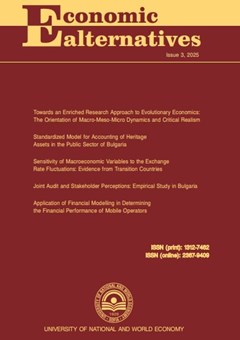Sensitivity of Macroeconomic Variables to the Exchange Rate Fluctuations: Evidence from Transition Countries
Author: Ourir Awatef
Abstract
This article aims to discuss the effect of the exchange rate variation on short- and long term fluctuations of different macroeconomic variables. This analysis serves also as a basis for judging the effectiveness of the monetary policy adopted by countries. The focus is mainly on countries in economic transition in the MENA zone (Tunisia, Morocco, Egypt, and Turkey). To achieve economic stability, these countries are faced with a particular situation following the volatility of their exchange rates. In our study, we use a vector error correction model (VECM) to test the cointegration of macroeconomic variables and to establish a dynamic long- and short-run relationship between them. The systematic vector error correction model (SVECM) is subsequently used to measure the impulsive responses of each variable. The results vary by country, but they all agree that transition countries in the MENA region are not adapted to deal with exchange rate shocks. This is why they have not benefited well from the devaluation of their national currency. Even though this exchange rate fluctuation may have a favorable effect in the short term, in the long term its consequences on basic macroeconomic variables are catastrophic, which automatically leads to the deterioration of economic growth.

